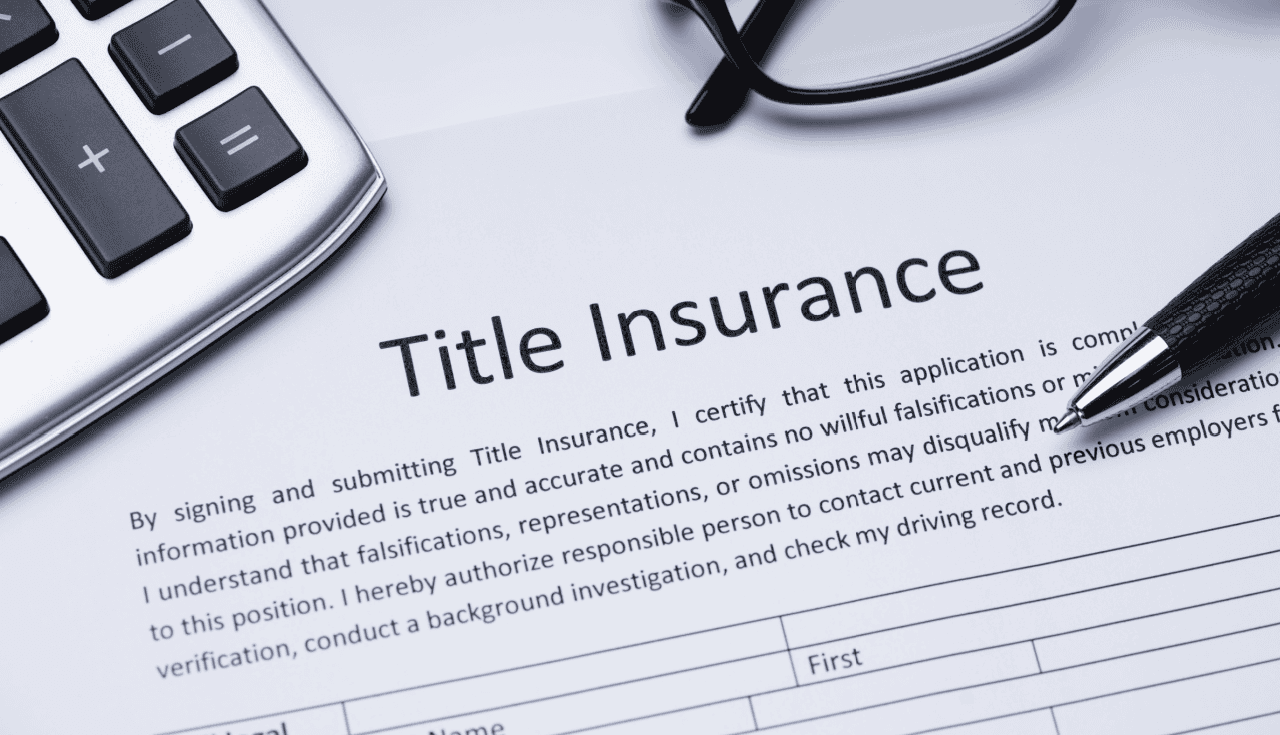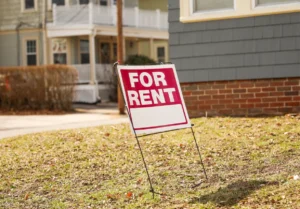Title insurance is a policy that protects you if a previous owner owes back taxes or an unknown heir tries to claim your property.

Understanding Title Insurance in Real Estate
- Title insurance protects a lender or homeowner if someone says they have a legal claim to your property.
- While lender’s title insurance protects your lender’s interest in your property, it provides no protection to you as the homeowner.
- To protect your own financial investment in your home, you’ll need to buy a separate owner’s title insurance policy.
Just as homeowners insurance protects you financially if your home is physically damaged or destroyed, title insurance protects you if someone makes a claim against your property’s title.
Title insurance is just one of the many protections you can have for your home — likely one of the largest purchases you’ll make in your lifetime. Here’s what to know about this insurance and how it will play into your home purchase journey.
Definition of title insurance
Title insurance protects a mortgage lender or homeowner from financial losses caused by issues with the home’s title.
A home’s title refers to who has ownership of or rights to the property. With title insurance in place, your insurer will defend you (and any co-owner) in court if another party tries to lay claim to your home. They will also cover damages and losses related to that claim.
Types of title insurance
There are two types of title insurance: one for owners and one for mortgage lenders. Your mortgage company will require that you at least have lender’s title insurance. This protects their financial interest in the home. Owner’s title insurance is optional.
Lender’s title insurance
If you’re financing your home purchase, your lender will require that you buy a lender’s title insurance policy. If someone tries to make a claim against your property’s title, the insurance policy will compensate them for any losses. This includes if the claim is found valid and you’re forced to give up your home to another party. (In this case, it would compensate them up to the total value of your home.)
Owner’s title insurance
If you want to protect yourself, you’ll need to purchase an owner’s title insurance policy, which protects you against any title claims on your home.
Some of the most common title claims are related to unpaid taxes. If the homeowner before you has an unpaid property tax bill and you don’t have an owner’s title insurance, you’ll either need to pay the taxes out of your own pocket or risk losing your home. And if the previous owner failed to pay home contractors for their services, they may be able to make a title claim as well.
Having title insurance can help you spot these issues before buying or, at the very least, have financial and legal protection should they crop up later on.
How title insurance works
Title insurance is a multi-step process. First, your title company will do a search on your home, with the aim of identifying any potential problems. Then, it will issue the policy.
Paying Too Much For Insurance?
Get a FREE quote to insure your rental properties for less.
How title insurance works
Here’s what the title search and insurance process looks like from start to finish:
The process of obtaining title insurance
When you (or your lender) hire a title insurance company, they’ll perform a title search on your home. During their search, they’ll look for any issues with the title that could stand in the way of the seller being able to transfer full ownership of the home into your name.
This process includes looking for outstanding liens on the property (i.e., essentially, unpaid debts that the property is being used as collateral for), unpaid property taxes, or other encumbrances. The title company will also establish a history of ownership and ensure that the seller is the current rightful owner of the home with the legal right to sell it.
If the title company uncovers any issues, some may be easy to fix. If so, they’ll take the necessary steps to clear the title before you close on the home. Once the title has been cleared (or cured), the title company will issue a title insurance policy.
What it covers and what it doesn’t
Title insurance covers claims related to unpaid taxes, unpaid contractor bills, and other liens against the property.
Title issues can also arise when public record errors, fraudulent documents, or undisclosed heirs or spouses are discovered. An owner’s title insurance policy will protect you financially in all of these situations.
Be warned, though: Title insurance won’t cover physical disputes of your property — like those relating to zoning, boundaries, or environmental hazards. Things like pest infestations or mold damage, which may be discovered after closing, aren’t covered either.
The importance of title insurance
With the average home priced at over $400,000 these days, you have a lot invested as a homeowner. Title insurance helps protect that investment and ensure you’ll retain the rights to it (and its future sale proceeds) later on.
Protecting against past discrepancies and legal issues
The most important thing title insurance does is protect you and your lender against the mistakes of past owners — as well as many overlooked and unseen issues.
It ensures that if someone else makes a valid, legal claim to your property — maybe they’re an heir of a past owner or they’re owed a debt for past construction work on the house — you won’t be out hundreds of thousands of dollars. Instead, the title insurance will compensate you for any losses that arise out of these situations.
Ensuring peace of mind for homeowners and lenders
Title insurance also just gives you and your lender peace of mind. There’s no need to worry that a past contractor bill could come back to haunt you or that the previous owner’s unpaid property taxes will cause you to lose your house. You can rest assured your financial investment is protected no matter what.
Common risks covered by title insurance
Title insurance policies are intended to cover most issues that can arise surrounding your home’s title. See below for more detail on what your policy can protect you from.
Liens, encumbrances, and defects in title
Liens are claims to your property based on an unpaid debt. If a contractor was not paid by a previous owner, for example, they could place a lien against the property until they get paid back. The same goes for unpaid taxes, child support, and other court-ordered judgments.
It also covers encumbrances in the title that could impact how you use the property (or how others do). For example, there may be a utility easement on the home, allowing a local gas provider to install equipment on your property. If these encumbrances aren’t found before your title policy is issued — and crop up later on after closing on the home — your insurance will compensate you for any losses.
General defects in the title, such as improperly filed or notarized documents, are covered by title insurance, too.
Forgery and fraud
Title insurance also protects you against fraud and forgery. This might include a forged deed, a fraudulent will giving someone claim to the property, or other instances of forgery or fraudulence.
The process of buying title insurance
The title insurance process isn’t complicated. In fact, your lender and title company will do most of the heavy lifting. The only thing you’ll need to do — in most cases — is pay for the policy as part of your closing costs.
Title search and examination
The initial process of getting title insurance involves the title search — when the title company uses public records, legal documents, tax liens, land records, deeds, court orders, and other documents to get a clear view of the property title’s history. They’re looking to uncover any discrepancies or potential alternate claims to the home.
If they find some, they will let the lender and borrower know, so they can get the issues resolved before closing. If a title contingency is in place, the borrower may be able to back out of the deal entirely.
Calculating insurance premiums
How much you’ll pay for title insurance will depend on the value of the home you’re insuring. The state you’re in will also impact your costs. According to the New York State Land Title Association, an owner’s title insurance policy typically costs around 0.5% of the home’s purchase price.
Unlike many other types of insurance, title insurance isn’t an ongoing cost. You’ll pay a one-time premium as part of your closing costs, and you’ll be covered for as long as you own the home. However, if you refinance, you will likely need to purchase a new lender’s title insurance policy.
Closing the insurance policy
You’ll pay for your title insurance policy as part of your closing costs. Then, once you close on your mortgage loan and the sale has been recorded with your county, the title company will issue your title insurance policy. This will cover you the entire time you’re in the home. If you ever refinance, you will need to replace your title insurance policy.
FAQs
While lender’s title insurance is usually mandatory, an owner’s title insurance policy is optional. Still, due to title insurance’s role in protecting real estate investments, it’s highly recommended you purchase both.
The cost of title insurance varies by location, loan amount, and policy type but it is usually around 0.5% of the home’s purchase price. It is a one-time fee paid at closing, and rates can range from a few hundred to a couple of thousand dollars.
No, title insurance is paid through a one-time premium at the time of closing and remains effective for as long as you own the property (or until you refinance.)
Yes, you should compare prices and services from different title insurance companies to find the best rates and coverage. Ask your real estate agent if you need help choosing a title insurance policy.
There are many benefits of owner’s title insurance policies, but the biggest are the financial and legal protection they provide. If you have owner’s title insurance, the insurance company will manage the legal defense against claims and cover any financial losses up to the policy limit.
Source: Business Insider













 Accessibility
Accessibility